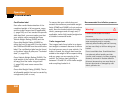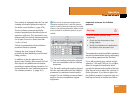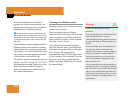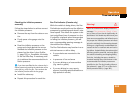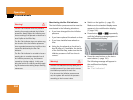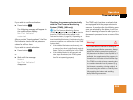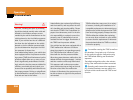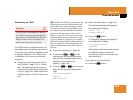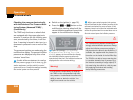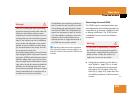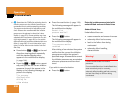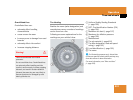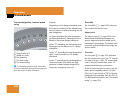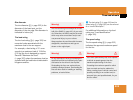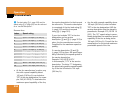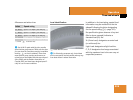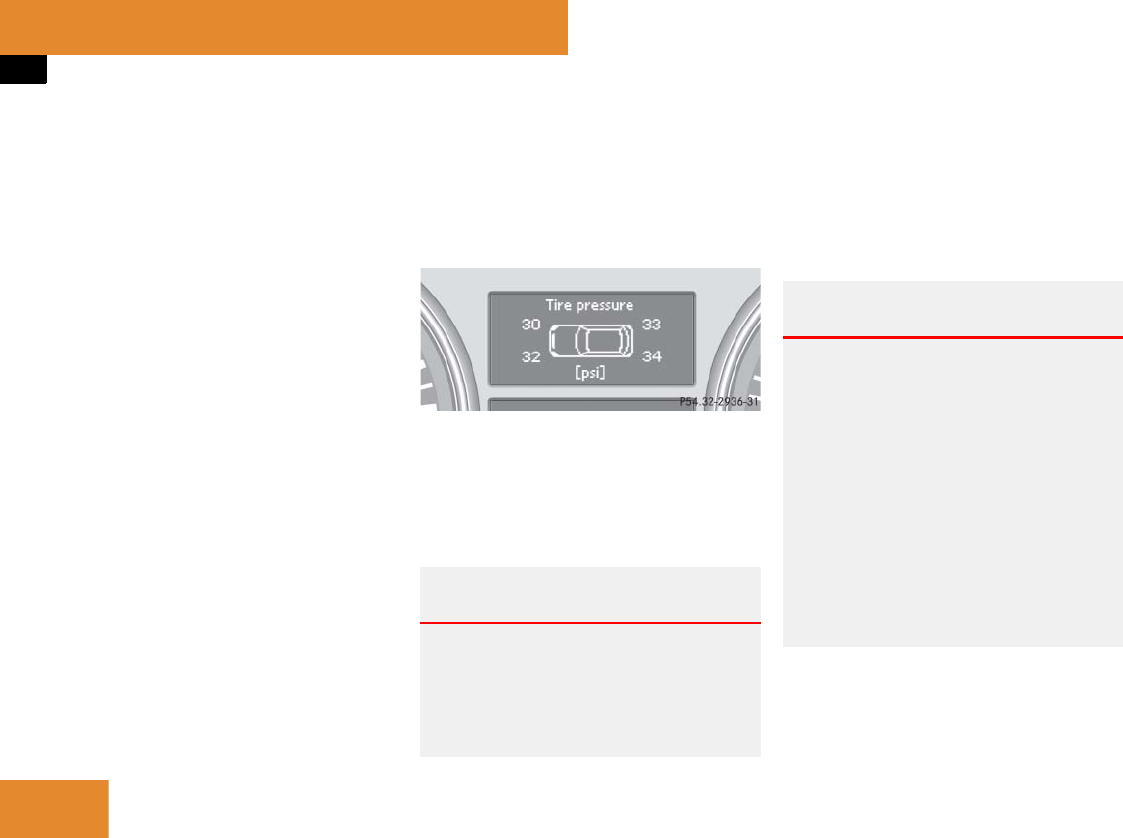
388
Operation
Tires and wheels
Checking tire pressure electronically
with the Advanced Tire Pressure Moni-
toring System (Advanced TPMS)*,
(Canada only)
The TPMS only functions on wheels that
are equipped with the proper electronic
sensors. It monitors the tire inflation pres-
sure, as selected by the driver, in all four
tires. A warning is issued to alert you to a
decrease in pressure in one or more of the
tires.
Tire pressure inquiries are made using the
multifunction display. The present inflation
pressures are displayed only after a few
minutes’ travel time.
̈ Switch on the ignition (୴ page 39).
̈ Press the j or k button on the
multifunction steering wheel until the
current inflation pressures for each tire
appear in the multifunction display.
i
Possible differences between the readings
of a tire pressure gauge of an air hose, e.g. gas
station equipment, and the vehicle’s control
system can occur. Usually the readings issued by
the control system are more precise.
i
When the message
Tire pressure
displayed after driving for a few
minutes
appears in the multifunction display,
the individual inflation pressure values are
matched with the tires. The individual values are
displayed after a few minutes driving.
Warning! G
It is the driver’s responsibility to calibrate
the TPMS on the recommended cold infla-
tion pressure. Underinflated tires affect the
ability to steer or brake the vehicle. You
might lose control over the vehicle.
i
With a spare wheel mounted, the system
may still indicate the tire inflation pressure of the
removed road wheel for some minutes. If this
happens, keep in mind that the indicated value
where the spare wheel is mounted does not re-
flect the actual spare tire inflation pressure.
Warning! G
The TPMS does not indicate a warning for
wrongly selected inflation pressures. Always
adjust tire inflation pressure according to
the placard on the driver’s door B-pillar or, if
available, the supplemental tire pressure in-
formation on the inside of the fuel filler flap.
The TPMS is not able to issue a warning due
to a sudden dramatic loss of pressure (e.g.
tire blowout caused by a foreign object). In
this case bring the vehicle to a halt by care-
fully applying the brakes and avoiding
abrupt steering maneuvers.



